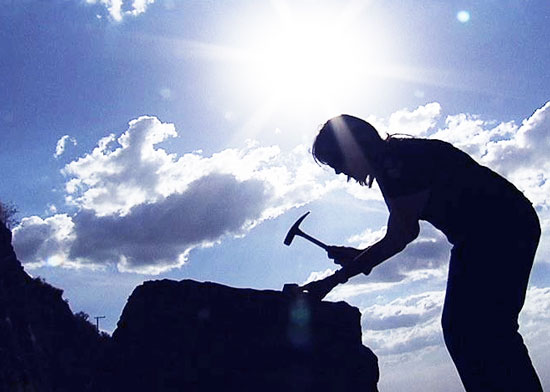
What's Geology?
Geology is the science that studies the origin, formation, structure and composition of the crust, and also the the changes it has undergone over time. A geologist investigates the action of natural forces on the planet and its effects, such as erosion, glaciation and desertification. For this purpose, he researches and analyzes fossils and minerals and land topografy. This specialist classifies igneous, sedimentary and metamorphic rocks, which are all found both on surface of Earth and in the subsoil and seabed. It also locates and monitors the exploitation of ore deposits, undergrounde water reserves of oil, coal and natural gas. Part of their concerns is to avoid the damage that the exploitation of these resources can cause to the environment. This professional makes environmental impact reports and analyzes the ground before the development of major works such as tunnels, dams, reservoirs, power plants, roads, railways, bridges and embankments.
The Course
The Bachelor begins with basic subjects such as chemistry, mathematics, physics and biology, but in the first year students have field activities to familiarize themselves with the contents of Geology. Then they are supossed to take some specific disciplines in the curriculum, like petrography (description and analysis of rocks), sedimentology and palaeontology. Starting the third year, emphasis is given on economic geology, remote sensing, mineral processing and urban geology, among other subjects. A considerable part of the necessary training to become a geologist occurs during practical lessons outside classroom. In field studies, students make mappings and material collection that will later be analyzed in a laboratory. In some schools, in the last year Students are required to prepare and deliver a final course assignment, , which can be done Within campuS or a company, according to the chosen theme.
Average course length: five years.
The job market.
"Mining and exploration of petroleum grew dramatically in the last decade. Moreover, the pre-salt changed the map of oil exploration in the world," says Rualdo Menegat , course coordinator at UFRGS (Federal University of Rio Grande do Sul). And this presents new opportunities for geologists. In the mining sector, agreements between Brazil and other countries must open opportunity for Brazilian companies such as Vale do Rio Doce to
expand their operations. In the public sector the Petrobras is hiring geologist. The market is stronger in regions of high business concentration, and in the South, the Southeast and in the Northeast of the country. Throughout Brazil, companies responsible for monitoring gas stations, preventing tanks to leak also hire geologists to prepare technical analyzes. In mining, the states that employ more geologists are Minas Gerais, Bahia, Goiás, Tocantins and Pará, but there are new positions arising in Mato Grosso do Norte and in Mato Grosso do Sul.
Top Universities in Brazil for taking Geology:
University Stars
Universidade de Brasília (UnB) ★★★★★
Universidade Federal do Pará (UFPA) ★★★★★
Universidade Federal da Bahia (UFBA) ★★★★
Universidade Federal de Belo Horizonte (UFMG) ★★★★
Universidade Federal de Ouro Preto (Ufop) ★★★★
Universidade Federal de Pernambuco (UFPE) ★★★★
Universidade Federal do Paraná (UFPR) ★★★★
Universidade Estadual do Rio de Janeiro (Uerj) ★★★★
Universidade Federal do Rio de Janeiro (UFRJ) ★★★★
Universidade Federal do Rio Grande do Norte (UFRN) ★★★★
Universidade Federal do Rio Grande do Sul (UFRGS) ★★★★
Unisinos ★★★★
Universidade Estadual de Campinas (Unicamp) ★★★★
Test: Does Geology is a good choice?
Did you enjoy this report? Write us your opinion.
Career in Focus.
